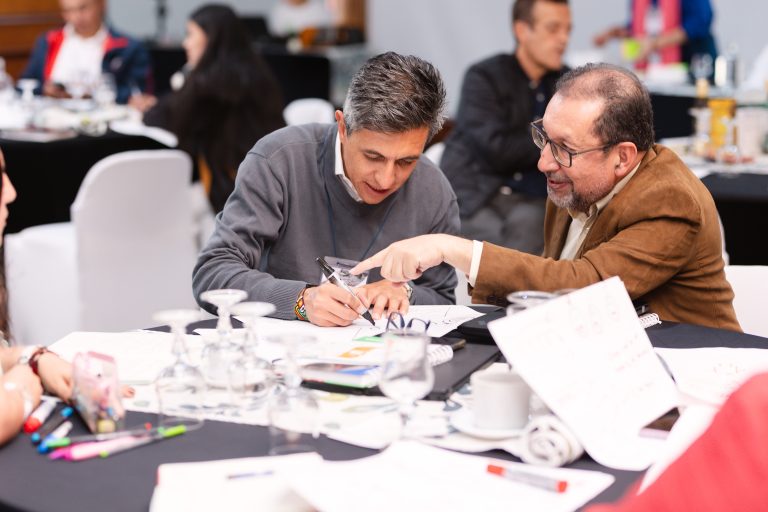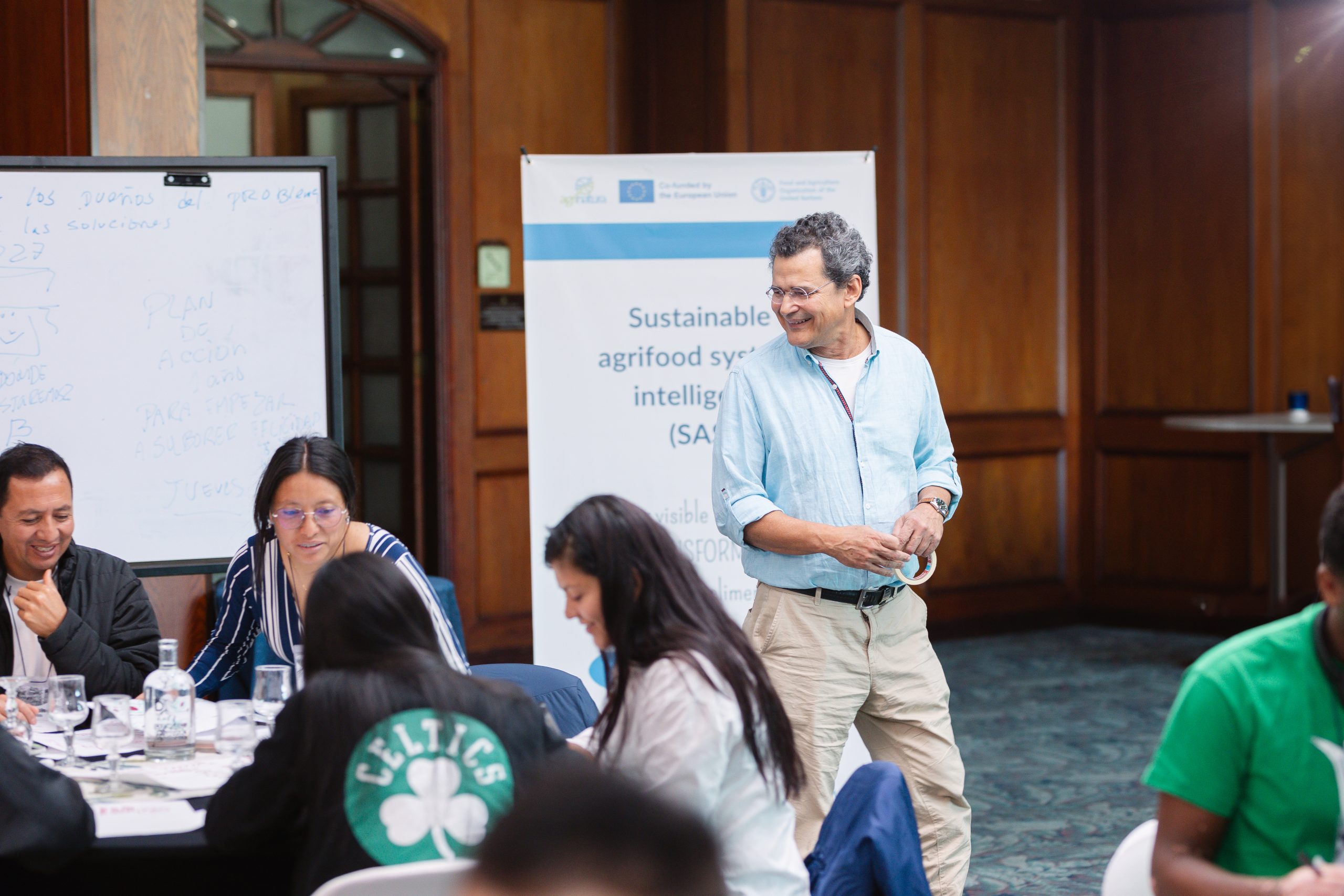
SASi-SPi is a five-year initiative funded by the European Commission through DG-INTPA. Its objective is to support transitions towards more sustainable Aquatic and Agri-Food Systems in Africa, Asia, Latin America and the Caribbean. In Colombia, Sierra Leone, and Bhutan, SASi-SPi supports stakeholders’ engagement in this food system transformation. This methodology strives to pave the way for institutional and policy reforms.
SASi-SPi builds on the Food Systems Assessment Initiative(FSA) launched by the European Union, the Food and Agriculture Organization of the United Nations (FAO), and the International Cooperation Centre of Agricultural Research for Development (CIRAD). The FSA also supports transition toward sustainable aquatic and agri-food systems. A “sister” project, named SASi is coordinated by the (FAO). The two teams, AGRINATURA and FAO, work in close collaboration and coordination on the overall project and each workstream
The SASi-SPi has four specific objectives and corresponding work streams:
Workstream 1 : Producing intelligence and analyses for decision makers
Coordinated by CIRAD. Provides fast-track intelligence in the form of policy briefs.
Workstream 2: Thematic narratives and reference frameworks
Coordinated by SLU. Establishes Science-Policy Labs to test and implement policy recommendations by engage scientists with other stakeholders.
Workstream 3: Transition support model in countries
Coordinated by CIRAD in close partnerships with FAO and EC. Collaborates with stakeholders in the three focus countries to build models for sustainable food system transformation based on science and participation.
Workstream 4: Communication For Development
Coordinated by iCRA. Enables and facilitates participatory dialogues where every voice is heard to embolden a food system transformation led by public, private and civil society actors.
iCRA is working to better engage public, private and civil society stakeholders in research processes. This enables stakeholders to advocate for the transition to sustainable agriculture, fisheries and aquaculture food systems.
Location(s)
Colombia, Bhutan, Sierra Leone
Timeline
2023 - 2027
Key theme(s)
Science-policy interface, Food system transformation
Partners
Agrinatura and EEIG, SLU, CIRAD, Instituto Superior de Agronomia, UGhent
Funding
“Policy change has to be relevant in the eyes of the beneficiaries. There is a need to change how we decide what needs to change.”


